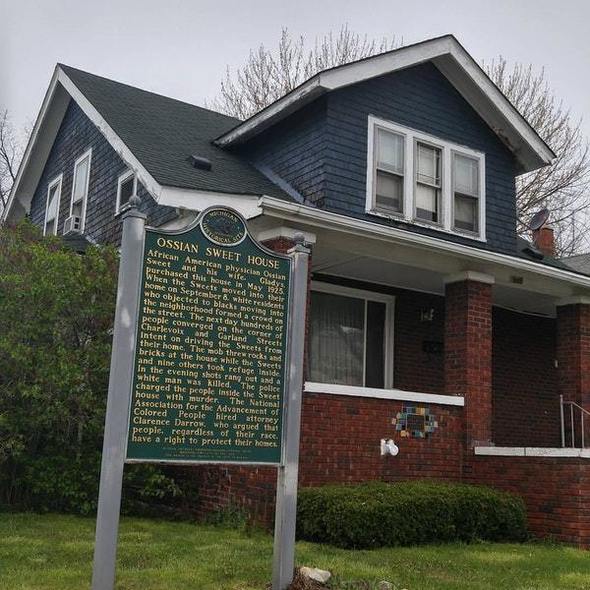The city of Detroit Monday announced it has been awarded a $500,000 federal grant to expand the historic district of the Dr. Ossian Sweet home and preserve two more adjacent houses.
Detroit was awarded the maximum grant amount from the African American Civil Rights program of the Historic Preservation Fund, National Park Service, and Department of the Interior. The project is among 51 in 24 states designed to preserve sites and highlight stories related to the African-American struggle for equality in the 20th century.
Ossian Sweet, an African-American physician, purchased the house at 2905 Garland Ave. in 1925 in a segregated white neighborhood on Detroit’s east side. On Sept. 9 of the same year, a violent mob gathered at the house to drive the Sweet family out of the neighborhood. Shots were fired in defense, and one man in the mob died.
Sweet and others in the home at the time were arrested and charged with murder. The NAACP hired Clarence Darrow, a renowned attorney, to represent Sweet. The case resulted in acquittal and brought international attention to U.S. housing discrimination.
“As Detroit continues to move forward, we cannot forget where we’ve been,” says Mayor Mike Duggan. “Preserving the Dr. Sweet home and expanding the historic district will give us a chance to reflect on the struggles many African-American families have faced and celebrate champions like Dr. Sweet and others, who stood up for what is right.”
The grant will pay to preserve and interpret a space in the Sweet house that will be open to the public for scheduled visits, as well as rehabilitating two additional properties across Garland Street, where the mob gathered and the shooting occurred.
The city is in the process of expanding the district to include properties at 2912 and 2918 Garland to cover the broader anti-integration movement and the events at the Ossian Sweet House as it relates to the Civil Rights Movement. Today, the Sweet home is privately owned, and only 2905 Garland is listed in the National Register of Historic Places.
When Duggan was Wayne County Prosecutor in the early 2000s, he led a campaign to place a state historical marker on the site. It was on the state register of historic places at the time but did not have a marker. Duggan helped unveil the new marker in 2004 when the National Black Prosecutors Association was in Detroit for its annual convention.
The proposed stabilization of the Sweet House and neighboring properties is supported by planning efforts in the Islandview and Greater Villages area as part of Detroit’s $130-million Strategic Neighborhood Fund. The plan was announced earlier this year and includes improvements to streetscapes, single-family housing, commercial corridors, and parks, as well as development of historic districts, strategic investment in target neighborhoods, elimination of blight, and protection of community historical and cultural assets.






